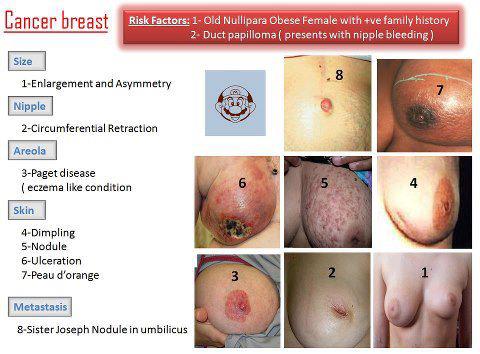Are Depressed Kids Bully Magnets?
Psychologists, not to mention parents, have long observed that kids who seem depressed tend to have trouble getting along with-and being accepted by-their peers.
What the experts haven't been able to agree on is which comes first, the depression or the social difficulty. Most researchers have supposed that kids who are excluded or bullied become depressed as a result (rather than vice versa), while others have suggested that the two problems go hand in hand and are all but impossible to tease apart.
A new study, published this week in the journal Child Development, provides some of the strongest evidence to date for a third theory: Kids who cry easily, express negative emotions, and show other signs of depression ultimately suffer socially because they are shunned by their peers and attract the attention of bullies.
"Bullies target youth who are unlikely to fight back," says lead author Karen P. Kochel, PhD, an assistant research professor at Arizona State University, in Phoenix. "Youth who are depressed really have the potential to appear vulnerable, and are easy marks for victimization, unfortunately."
To better understand how depression and social problems unfold over time, Kochel and her colleagues tracked an ethnically and socioeconomically diverse group of 486 children as they went through the 4th, 5th, and 6th grades. Along the way, the researchers periodically gauged depression symptoms and social acceptance by surveying parents, teachers, and the kids themselves.
Fourth graders who showed signs of depression were more likely than their classmates to be victimized as fifth graders, and kids who were picked on in fifth grade tended to be less accepted by their peers in sixth grade.
By contrast, the researchers found little evidence that being bullied increased a child's risk of becoming depressed in later grades.
Although the findings suggest that depression tends to precede social difficulty, they don't rule out the possibility that problems with peers can make an already depressed child even more depressed. "I think it's very possible it is a cyclical process," Kochel says.
It's not clear from the study what the depressed kids might have done, specifically, to turn off their peers. But research in adults suggests that depression can have a negative effect on a person's social skills and overall agreeableness, says David Schwartz, PhD, an associate professor of psychology and education at the University of Southern California, in Los Angeles, who did not participate in the study.
Depressed people "are often characterized by negativity and inappropriate self-disclosure-think of 'Debbie Downer' on Saturday Night Live," Schwartz says. "As a result, they may not be all that much fun to be around. Unfortunately, they sometimes get into a cycle where depression brings social skills deficits, and social skills problems lead to interpersonal rejection, which helps maintain the depression."
What the experts haven't been able to agree on is which comes first, the depression or the social difficulty. Most researchers have supposed that kids who are excluded or bullied become depressed as a result (rather than vice versa), while others have suggested that the two problems go hand in hand and are all but impossible to tease apart.
A new study, published this week in the journal Child Development, provides some of the strongest evidence to date for a third theory: Kids who cry easily, express negative emotions, and show other signs of depression ultimately suffer socially because they are shunned by their peers and attract the attention of bullies.
"Bullies target youth who are unlikely to fight back," says lead author Karen P. Kochel, PhD, an assistant research professor at Arizona State University, in Phoenix. "Youth who are depressed really have the potential to appear vulnerable, and are easy marks for victimization, unfortunately."
To better understand how depression and social problems unfold over time, Kochel and her colleagues tracked an ethnically and socioeconomically diverse group of 486 children as they went through the 4th, 5th, and 6th grades. Along the way, the researchers periodically gauged depression symptoms and social acceptance by surveying parents, teachers, and the kids themselves.
Fourth graders who showed signs of depression were more likely than their classmates to be victimized as fifth graders, and kids who were picked on in fifth grade tended to be less accepted by their peers in sixth grade.
By contrast, the researchers found little evidence that being bullied increased a child's risk of becoming depressed in later grades.
Although the findings suggest that depression tends to precede social difficulty, they don't rule out the possibility that problems with peers can make an already depressed child even more depressed. "I think it's very possible it is a cyclical process," Kochel says.
It's not clear from the study what the depressed kids might have done, specifically, to turn off their peers. But research in adults suggests that depression can have a negative effect on a person's social skills and overall agreeableness, says David Schwartz, PhD, an associate professor of psychology and education at the University of Southern California, in Los Angeles, who did not participate in the study.
Depressed people "are often characterized by negativity and inappropriate self-disclosure-think of 'Debbie Downer' on Saturday Night Live," Schwartz says. "As a result, they may not be all that much fun to be around. Unfortunately, they sometimes get into a cycle where depression brings social skills deficits, and social skills problems lead to interpersonal rejection, which helps maintain the depression."




i dont know. i think its just lack of respect that causes this bullying problem to begin with
ReplyDeleteSome of these kids will feel much better once they fight back like I did. It kept me from getting picked on to show that I had spunk.
ReplyDeleteThis is really sad. It sickens me how bullying is such a big problem in our society :\
ReplyDeletei agree that it's cyclical! bullies target the vulnerable. then peers contribute to this humiliation. we need to figure out how to help & teach these depressed kids effective ways to express themselves & become empowered. for unfortunately, bullying doesn't end in childhood. many adults still, engage in this behavior. wouldn't it be fabulous to be proactive instead of reactive?
ReplyDeleteSo sad. :/
ReplyDeleteIt would be wonderful if this research lead to some concrete way to fight bullying.
ReplyDeleteThey spent money to research this kind of thing and yet it doesn't really solve the problem of bullying. They just wasted their time on this, they should've implemented a more discplinary method for bullies instead.
ReplyDeleteWas this study peer-reviewed?
ReplyDeletebullying was a huge thing in my school.
ReplyDeletenot that i bullied people, nor id i get bullied but i saw it happeneing everyday, sad times
Well, atleast they're researching SOMETHING. Captains obviouses.
ReplyDeleteSounds intersting, anything that leads to less bullying is good.
ReplyDelete